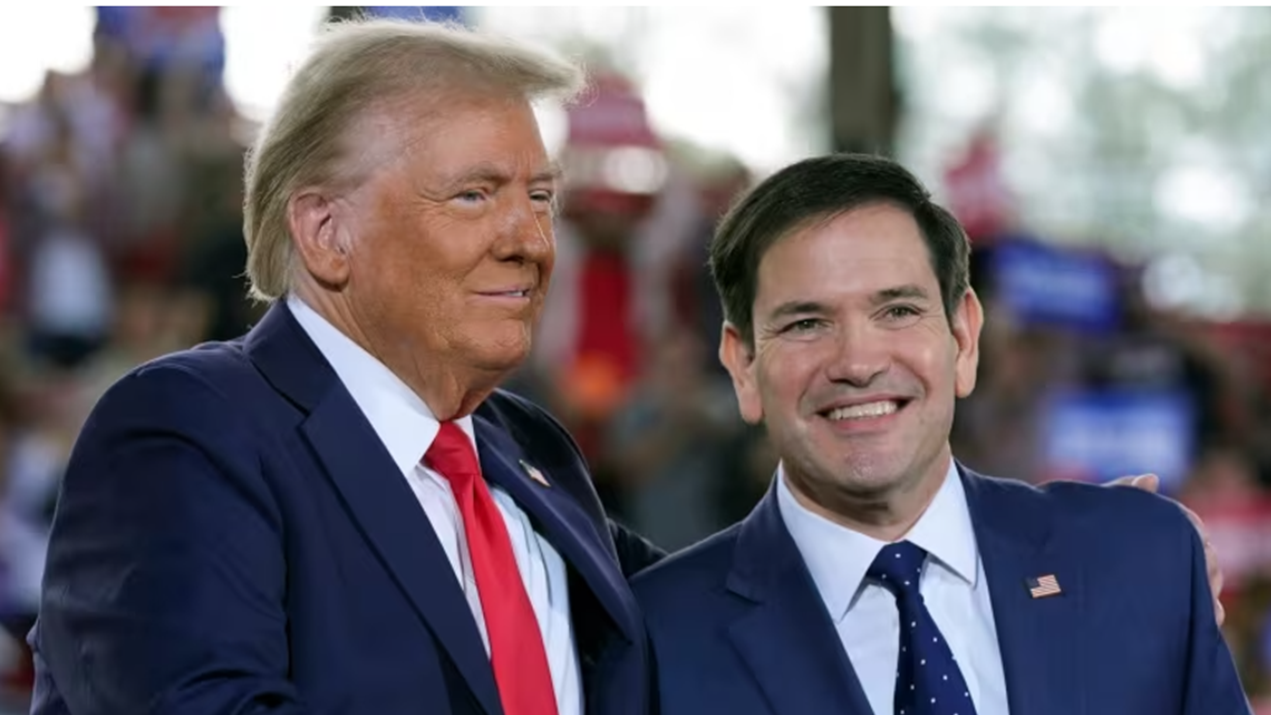Great and deeply worrisome expectations surrounded Trump’s startling return to power, both during his campaign and in the wake of his victory.

Most of these appointees either lack the high-level experience required for their roles, are excessively ideologically driven, or appear ill-equipped to handle the complexities of their positions. Rebellion from within the base, particularly in the Defence and Intelligence spheres, seems not just possible but likely.
One of the most controversial figures is Tulsi Gabbard, an Iraq war veteran who on multiple occasions has accused Trump of being “Saudi Arabia’s bitch,” taking orders from his Saudi “masters,” and of supporting Al-Qaeda (banned in Russia). However, over the past four years, she has fully embraced Trump’s “America First” stance to justify her opposition to the prevailing bipartisan elite foreign policy consensus.
Here are my five reasons why I believe Trump will fall short—again.
1. Neoconservative Entrenchment
Trump’s campaign rhetoric against “war hawks” has been contradicted by his cabinet choices, which include figures deeply entrenched in neoconservative foreign policy. The likely appointments of Mike Waltz and Elise Stefanik signal continuity with the interventionist policies of past administrations. This reflects a failure to address the public’s demand for an end to endless wars and a redirection of resources to domestic priorities so much in need.
2. A Pattern of Broken Promises
During Trump’s first term, he inherited conflicts abroad and pledged to de-escalate. Although his administration did not start any major new conflict, he intensified involvement, from assassinating General Qasem Soleimani to continuing the occupation of Syria. This track record casts doubt on his ability—or willingness—to shift away from America’s long-standing foreign policy approach and the maintenance of 800 plus U.S. military bases around the globe at almost one trillion dollar cost, so much needed for domestic challenges.
3. Shifting Priorities, Same Tactics
While Trump’s administration appears poised to wind down support for Ukraine, this doesn’t mark an end to interventionism. Instead, the focus is shifting toward more significant confrontations with China and Iran.
Before Trump’s victory, Benjamin Netanyahu seemed to adopt a courting approach to gain Trump’s favour for his vision of Greater Israel and his relentless efforts to crush Iran, which he knows is only possible with U.S. support. Judging by Trump’s appointees and the choice of the new American ambassador to Israel, there are clear signs that the newly elected President is willing to acquiesce to this agenda.
This reallocation of resources suggests a reshuffling of priorities rather than a true departure from aggressive foreign policy.
4. Systemic Continuity Over Individual Leadership
The consistent presence of neoconservative figures across successive administrations underscores a systemic issue: the near-impossibility of breaking free from the influence of powerful interest groups and institutional inertia that shape U.S. foreign policy. This system operates beyond the control of any single leader, driven by entrenched interests such as defence contractors, think tanks and lobbying organizations.
Key players include defence industry giants like Lockheed Martin, Raytheon, and Boeing, which benefit from prolonged military engagements and exert influence through campaign contributions and lobbying. Additionally, institutions such as the Department of Defense, the State Department, and intelligence agencies maintain a strong preference for interventionist strategies to preserve U.S. global dominance.
U.S. foreign policy is shaped within a tight-knit ecosystem of government institutions, think tanks, and defence contractors, with individuals frequently moving between these sectors. For example, Lloyd Austin, the current Secretary of Defense under Biden, previously served on the Board of Directors at Raytheon before his appointment.
Think tanks such as the Center for Strategic and International Studies, Center for a New American Security, Hudson Institute and the Atlantic Council further reinforce these policies, shaping public discourse and advising policymakers in ways that perpetuate aggressive, hawkish foreign policy. This deeply entrenched bi-partisan ecosystem undermines Trump’s narrative of being a disruptor, as it ensures continuity in U.S. foreign policy regardless of campaign rhetoric or electoral outcomes.
5. Bait-and-Switch Politics: Trump’s campaign leveraged anti-war rhetoric to galvanize public support, yet his actions suggest a repeat of the “bait-and-switch” tactics observed during his first term. This disconnect between campaign promises and policy implementation risks alienating voters disillusioned by unfulfilled commitments.
The “Bait-and-Switch Politics” tactic often exploits the trust and expectations of voters, leading to disillusionment when the advertised agenda is swapped for one aligned with special interests or political expediency. In Trump’s case, his anti-war rhetoric during campaigns has consistently been replaced by appointees who probably will maintain or escalate U.S. interventionism abroad.
Climate change or environmental matters were not mentioned above because Trump has promised nothing in favour of these areas. On the contrary, he has made it clear he intends to fully side with the oil industry.
In the next article, I will explore the U.S. strategic interest in foreign policy related to Ukraine and China, and the role of Europe in their strategic interests. These, besides Israel/Gaza and Iran, are on the top of the new foreign affairs agenda.
Under a second Trump administration, the US approach to Ukraine and China seems set for dramatic contrasts, driven not by ideology but by shifting strategic interests.
Ricardo Martins ‒PhD in Sociology, specializing in policies, European and world politics and geopolitics, especially for the online magazine “New Eastern Outlook”
